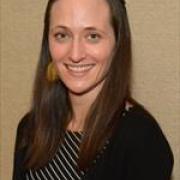Tung Nguyen, MD
Addressing health disparities using community-based participatory research methods.
Danielle Ramo-Larios, PhD
Using digital media to change health risk behaviors including tobacco, alcohol, and other drug involvement.
Rita Redberg, MD, MS
Effects of secondhand smoke and other work related conditions (radiation) on flight attendants, technology assessment and preventive cardiology.
Sujatha Sankaran, MD
Smoking cessation, particularly in the hospital environment, tobacco use in low and middle income countries.
Jason Satterfield, PhD, MA
Implementation of evidence-based behavioral interventions in primary care including screening, brief interventions, and behaviorally-based treatments for tobacco and substance use disorders.
Suzaynn Schick, PhD
Effects of exposure to secondhand cigarette smoke on the upper and lower respiratory tract in human subjects and the chemical and physical changes that occur in aging secondhand smoke.
Laura Schmidt, PhD, MSW, MPH
Dr. Schmidt's central goal is to bridge the worlds of biomedical research, clinical practice and population health in ways that help us better understand some of the most pressing issues in health and health care today: the widening of health disparities and the societal of regulation risk factors in chronic disease. Substantive areas of her research include addiction, poverty, obesity-related metabolic disease—all burdens that are profoundly influenced by the organization of care and the social environment. A hallmark of her research is blended methodologies: she incorporates historical-archival, ethnographic and quantitative methods into most of her studies as a way to cross-validate findings and better interpret their meaning. Since its inception, her research program has been stably funded through awards from the National Institutes of Health (NIH) and US Substance Abuse and Mental Health Services Administration, in combination with funding from private foundations, including the Laura and John Arnold Foundation, Robert Wood Johnson Foundation (RWJF), Commonwealth Fund, Atlantic Philanthropies and Crossfit Foundation.












